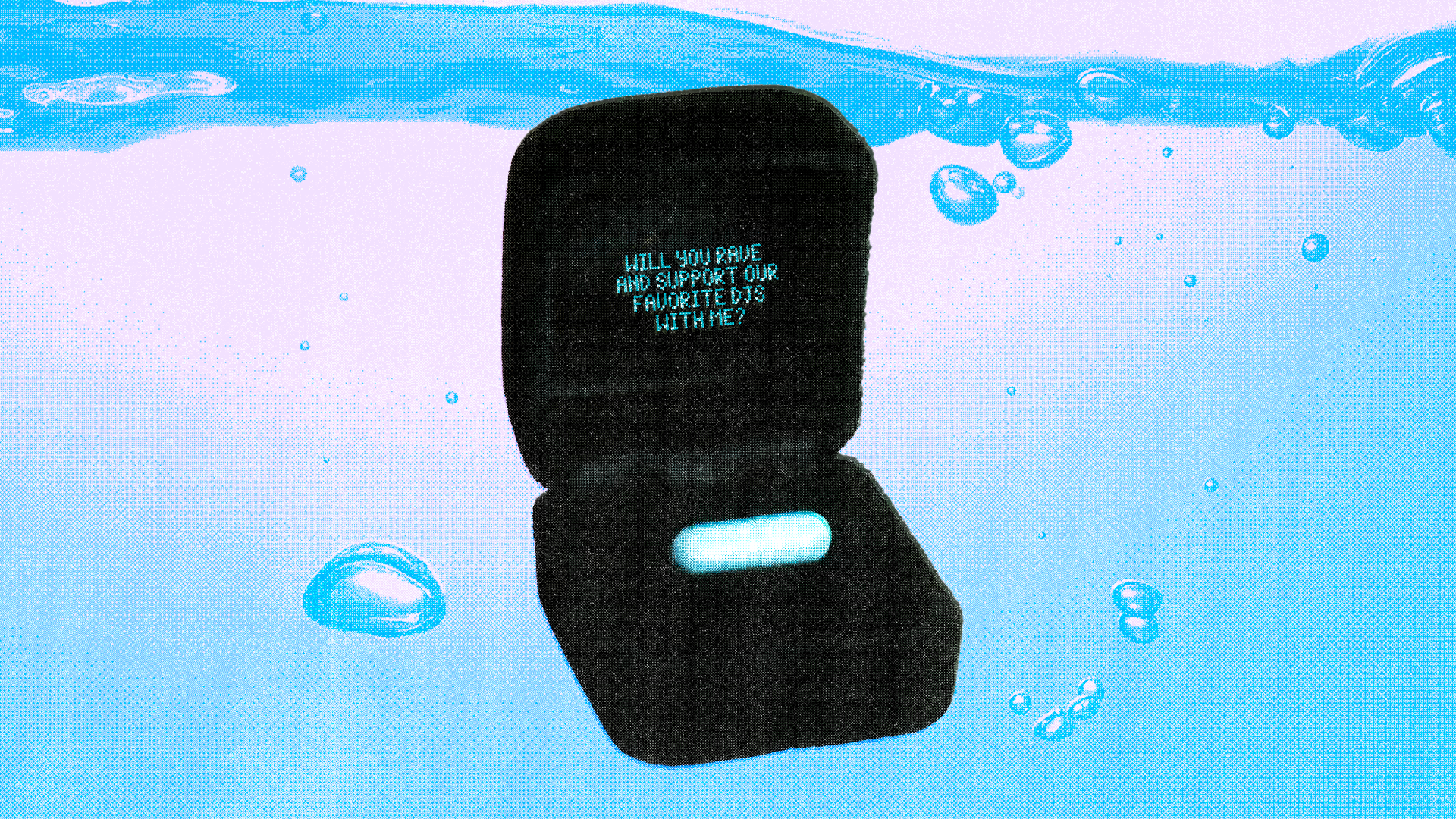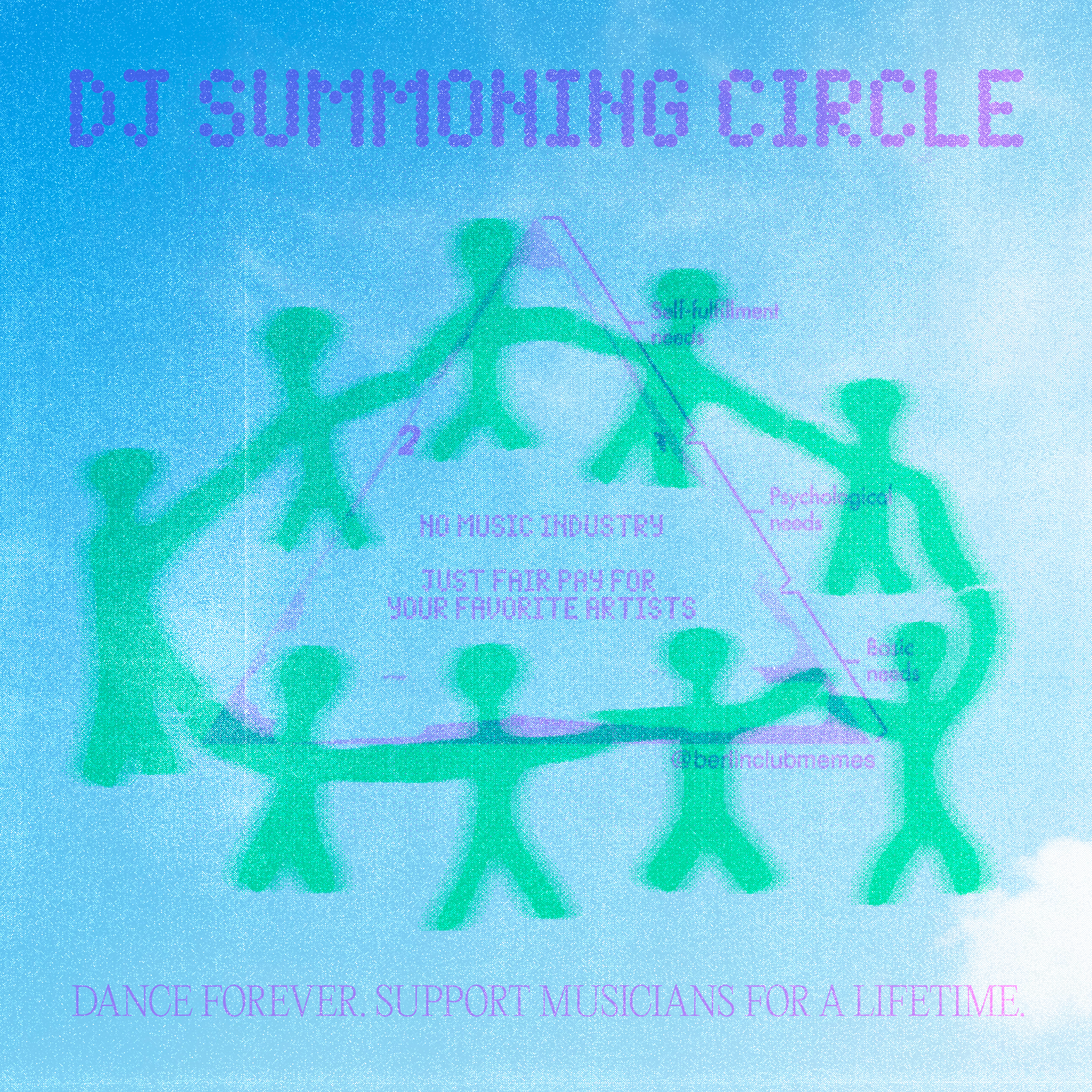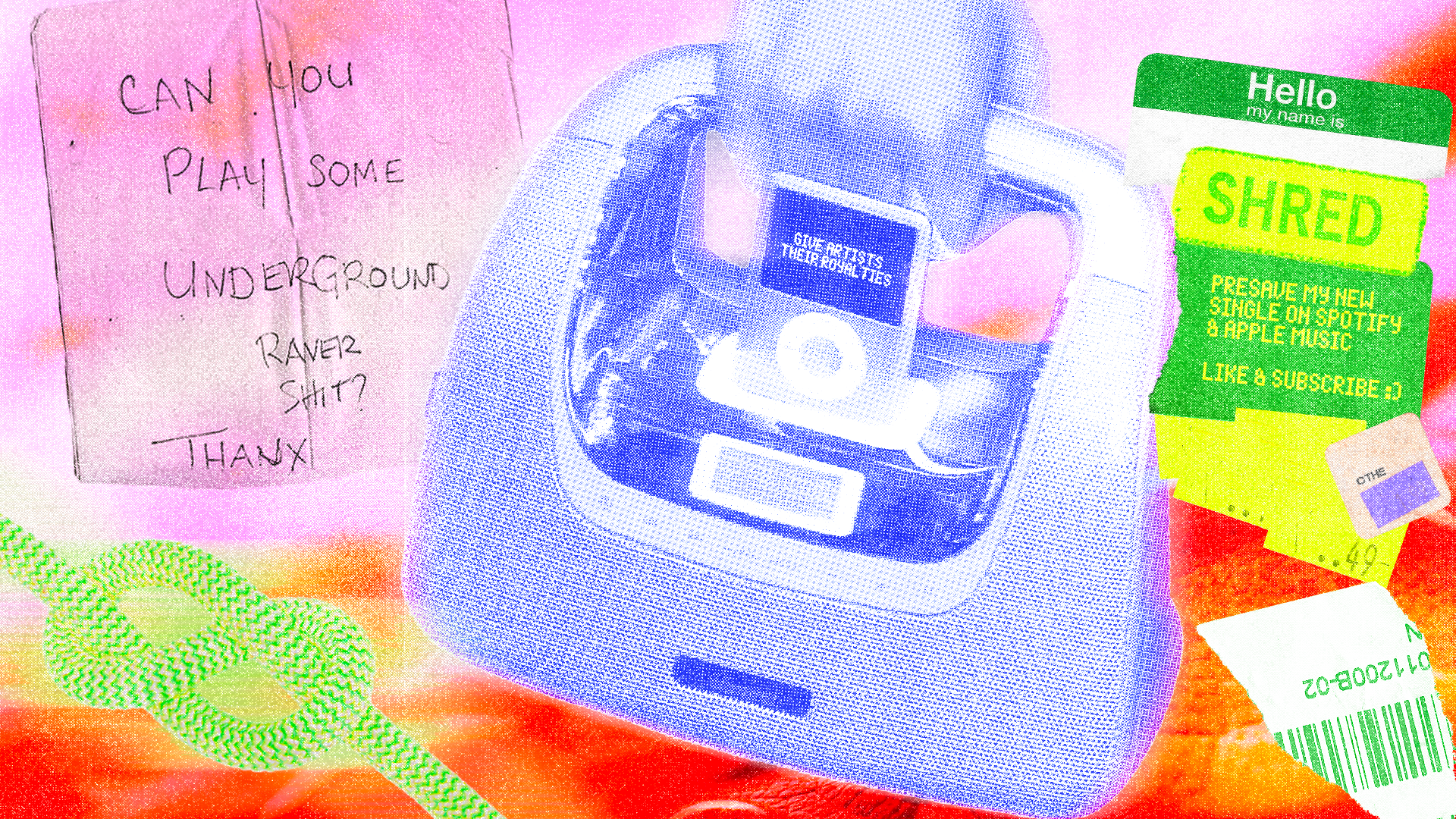- Ariel LeBeau
- Austin Robey
- David Blumenstein
- David Ehrlichman
- David Kerr
- Devon Moore
- Dexter Tortoriello
- Drew Coffman
- Drew Millard
- Eileen Isagon Skyers
- FWB Staff
- Greg Bresnitz
- Greta Rainbow
- Ian Rogers
- Jessica Klein
- Jose Mejia
- Kelani Nichole
- Kelsie Nabben
- Kevin Munger
- Khalila Douze
- Kinjal Shah
- LUKSO
- Lindsay Howard
- Maelstrom
- Marc Moglen
- Marvin Lin
- Mary Carreon
- Matt Newberg
- Mike Pearl
- Mike Sunda (PUSH)
- Moyosore Briggs
- Nicole Froio
- Ruby Justice Thelot
- Simon Hudson
- Steph Alinsug
- The Blockchain Socialist
- Willa Köerner
- Yana Sosnovskaya
- Yancey Strickler
- iz

Fri Aug 05 2022

Next weekend’s FWB FEST is, in a way, a convergence of past and future. The aesthetics and values of the three-day event draw upon nostalgic visions of togetherness in nature — the mountains of Idyllwild, California, to be exact — but the community we’re bringing to life IRL coalesced thanks to technologies like tokenized ownership and on-chain governance.
We’re not necessarily interested in progress for its own sake. One of the reasons we’re so bullish on Web3 is that the emerging tools associated with it are, in a very real sense, unclaimed territory. If what’s out there doesn’t serve our purposes, we can always make something new.
The past decade in music has given rise to a new status quo centered around monolithic, for-profit streaming services. It’s a model that’s great for major labels — the so-called “Big Three” make an estimated $2.5 million per hour off streaming — but unless you’re a high-profile artist with the clout to directly negotiate your streaming payouts, you’re probably receiving as little as a fraction of a penny per stream. For years, this created a situation where most artists had to rely on avenues like touring and merch sales to make a living. When the pandemic hit pause on live events, however, it had the side-effect of raising public awareness that artists were workers and that centralized systems of intermediaries were extracting far too much of the value they were creating.
It’s clear that the music industry needs creative, artist-first solutions. And who better to offer some ideas than artists themselves? So we asked some of the musicians playing FEST — Haleek Maul, Julianna Barwick, Kilo Kish, Telefon Tel Aviv, Pussy Riot’s Nadya Tolokonnikova, Sudan Archives, Hundred Waters’ Trayer, and Christopher Willits — to tell us what a better creative economy might look like, and the role technology would play in it. — Drew Millard
Pussy Riot’s Nadya Tolokonnikova: The music industry of my dreams is way less centralized and douchey than it is today — it’s not ten males deciding what's hot and what's not.
The music industry of my dreams is not fearful and privileged.
The music industry of my dreams is not an industry.
Telefon Tel Aviv: A better music industry is one where the working-class musicians aren’t clawing at each other to get 11th hold at a 150-capacity venue in a C-market town on a Wednesday. This means that streaming royalties will need to favor artists more than they currently do, or that we will need to move to a more direct-to-audience model as much as we can.
Web3 technologies afford this for some artists in a way that, at least anecdotally, has lifted some out of poverty and given them a clearer path, with a little less externality stress. What must be done now, and hopefully by better minds, is to bring this to scale so that it serves all artists — not just a few, hand-selected hype generators. There are many types of artists, and “performance” is just one small part of creative expression. Those who prefer not to (or cannot) perform, I hope, will no longer be left behind.

Haleek Maul: I guess a better music industry would look like less predatory deals in business relationships between artists and distribution platforms. I still believe in artist services in a very pure sense — like, A&R in a pure sense, artist development in a pure sense. These are things that are important, but they’re being slept on for the benefit of, for example, higher performance on streaming.
I think NFTs fix a lot of stuff in the current music model just because artists do have that ownership. [They can say,] “It’s my thing, I put it up, I essentially own it, the money goes straight to me, in some cases I receive compensation in perpetuity.” And it cancels a lot of the more complicated aspects of accounting — things that are not really in our hands as artists when it comes to being a part of a machine. New technology’s always going to have its push and pull, but I think NFTs and crypto are going to create more opportunities for us to grow and learn and see artists as entities, experiment on a larger scale.
As far as AI and machine learning, I think they’re good tools that are not meant to be abused. But, in my opinion, they probably most likely will be.
Sudan Archives: A better music industry, to me, would be less platforms like Spotify that take a huge percentage of your streaming and less labels that have weird contracts that take huge percentages out. As technology has grown, we have gotten more distant from nature and the organic-ness of it. I have no knowledge on NFTs, but my theory on the future of sound looks like a technological way to implement more nature with music.
Julianna Barwick: I don't know much about crypto or NFTs, but I strongly believe that the streaming culture of music has devalued our work as musicians to an egregious degree. The situation has perpetuated this idea that music is free and that it's there for the taking — for instance, soundtracking a product commercial on Instagram, without [the company] checking with the artist. I think big billionaire companies need to make this right with musicians ASAP, and there are organizations that are trying to help make that happen, like the Union of Musicians and Allied Workers. Hopefully, there can be a system where music is accessible, but the musicians are also compensated fairly.
Kilo Kish: I see the music industry as something that’s always widening its branches and becoming more accessible. I would have never been able to do this 20 years ago. Blogs and social platforms gave me the opportunity to be discovered, and it's cool that people will have that opportunity with the newer platforms.
I think music is at its best within subcultures — and the Web3 music community is [just] that. Although it’s not banded by a genre or a particular look, it’s still a convergence of ideas and questions about what the future might look like. There are so many paths to being an artist at this point, and I don’t know that all the branches will ever fully intersect. But I do think that the many kinds of music industries can coexist, and even overlap.
I think a better music business would include increased funding for the arts and less pressure to produce endless filler content so that the work itself can be crafted with more consideration.

Christopher Willits: The music industry needs transparency and accountability. Blockchain provides an opportunity for clear agreements that can serve everyone involved. Ownership of recordings and compositions can be clarified, streaming plays accounted for, royalties distributed, tickets issued, memberships governed, and collective workflows enhanced. We’re witnessing the evolution of agreements, which can strengthen trust, efficiency, and creativity. We have an opportunity to design these systems wisely for the good of all, not just a few.
Trayer: Crypto is an incredibly freaky civilizational development. I’m wondering if it can remain truly ungovernable, which is sick, or if it’s going to be subsumed into American finance like the rest of the internet thus far.
There will be plenty to be disgusted by in a world mediated by crypto: less anonymity, privacy eviscerated by blockchain analysis, public engagement metrics (likes, follows) being equated to literal amounts of money, “GM” culture everywhere, etc. The “financialization of everything” isn’t going to magically disappear when “useful to regular people” arrives. But I think there will be more ways of making a living that aren’t beholden to the Spotifys of the world, giving artists more bargaining power and autonomy.
With art, honestly, I am personally not that interested. I like my art big and real, not on a little screen. No matter what you’re trying to say with an NFT, the only subject matter that really comes through is “NFTs are crazy and I’m cutting edge.” That’s not why I make things. I want God to bend my memories into some physical fact of beauty that gets moved around by other people until it falls apart. That’s lit.
With music, NFTs are without a doubt fucking awesome. Music is already invisible: It naturally conveys itself through our devices, in full force. Put whatever weird ownership scheme behind it you want, and I’m down. [I do think, however, that] music will always benefit from living in a quickly accessible library. [I’d like to be able to] cue up Celine Dion’s “It’s All Coming Back To Me Now” while switching lanes on the freeway. If NFTs are somehow behind that happening, then hell yeah.
FWB FEST is going down from Friday, August 12 to Sunday, August 14. Information and tickets here.
Graphics by Fiona Carty.


